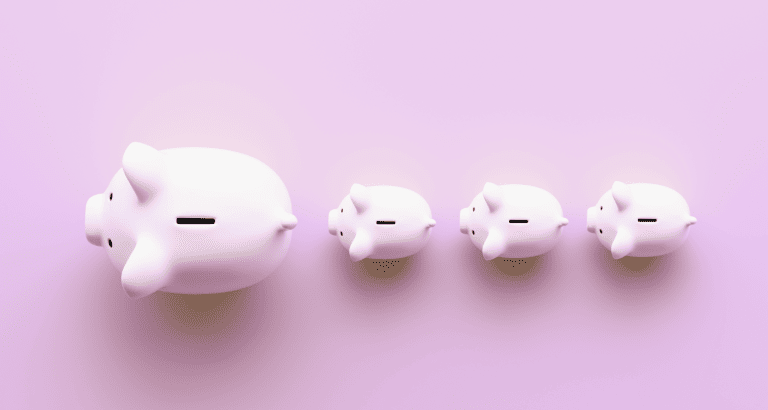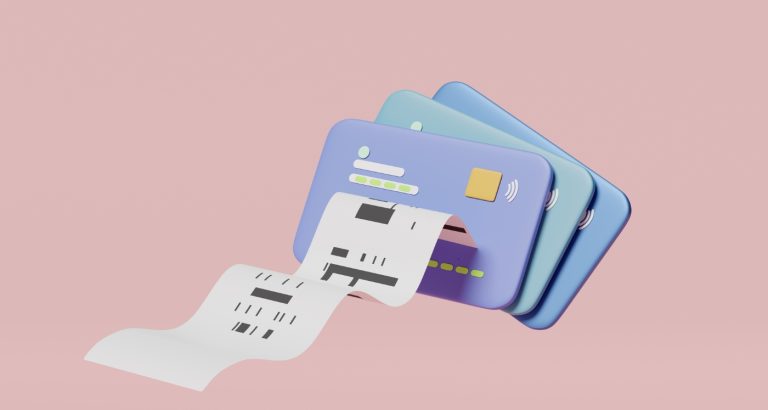Can Banks Take Your Money?

Have you ever wondered “Can banks take your money?” What happens if they lose or simply refuse to return your money? What if the bank fails or closes? Can a bank take your money without your approval?
The good news is that your money is safe from loss should the bank fail if you deposit it into an FDIC-insured bank account. But there are some situations when they CAN take money from your account without your consent, and other cautions you need to be aware of.
As an affiliate partner of various brands and sponsored content, HerPaperRoute may earn commission on qualifying purchases. Disclaimer
Continue reading to learn about the different scenarios where a bank could withdraw money from your account.
Understanding The Trust One Has With Their Bank To Not Lose Their Money
Banks… The one facility that, like it or not, is impossible to live without.
You’re unlikely to meet someone who enjoys excursions to the bank, even when they are on your side. Regardless of the sheer annoyance most of us feel, we are highly dependent on them to keep our money safe.
This requires a lot of trust, right? How are we to trust a company that does not know you personally to keep your money safe?
Trust is something that is earned, but at the same time, you usually need to allow the trust to be proven, so you deposit your money at your chosen bank. For many people, this is their paycheck which they need to live on, and it won’t go unnoticed if the money goes missing.
Why Would a Bank Take Your Money?
The terminologies that bankers use is very confusing for many people. If you tend to zone out the moment these topics come up, you’re not alone.
It is usually in these moments that you’re being told certain crucial factors, like the terms and conditions of your bank.
The question that you are itching to hear the answer to is, “Can a bank take your money?” In short, if you have debt with the bank, and you have outstanding payments, then a bank will be able to take money from your savings or checking accounts to pay the installments owed.
When Are Banks Not Allowed To Take Your Money?
I’ll say it again for good measure. A bank is not allowed to take money from your available funds unless you have taken out debt with them, and you have been failing to meet your repayments.
Even if this were the case, there are a few aspects that prevent them from doing so, and here they are:
1. Loan Security: Why People Prefer External Companies Over Banks
If you took out a loan with another company other than the bank, the bank is not able to take your money. That means that the bank is only allowed to take your money without your permission if you have debt with the same bank as your savings or checking account. This is why a lot of people prefer to take loans from external companies as a safety precaution.
2. Joint Accounts: Legalities and Limitations with Debt Repayments
These days banks will allow you to open a joint bank account with your partner without having to tie the knot. This also makes it potentially difficult for a bank to take money out for debt repayments, depending on the terms.
Some states allow up to 50% of the account to be taken by creditors while other states allow 100% of the money, despite how much each person put into the account.
3. Joint Account Debt: Understanding Terms and Conditions
The bank may be able to take the money from the joint account for debt that only one of the two people who opened the account.
While that seems completely unfair to the person without the debt, it depends on the terms and conditions of the debt so make sure you know what you agreed to.
4. Debt Repayment: Conditions for Bank Withdrawals
The bank can only take the money from your account if you are behind on payments for the debt you have with them. This means, your money is safe if you remain up-to-date with your payments.
5. Bank Assessment: Factors Considered Before Withdrawing Funds
Before the bank takes money from your account to pay the installments you owe, they will evaluate your account and decide whether or not taking the money is going to cause any difficulties for you. Keep in mind that their definition of “difficulties” may be different than your own.
6. Government Benefits: Protection of Direct Deposits
Lastly, if you are receiving any money from the government to survive, like Social Security, that money should be safe as long as that’s the only money being direct-deposited into that account.
There are a lot of nuances surrounding the situations where banks are and aren’t able to take the money from your account so it’s best to make sure to read your terms and conditions and speak with a professional if you need help understanding it.
“Right of “Offset” Explained
I have thrown the term “right of offset” around once or twice now, but what is it exactly? Ultimately, this is the permission slip that allows banks to take money from your checking or savings account to pay debts that you have taken out with the very same bank.
When you are with your banking representative, about to open up a new account, they are required to explain everything about the “right of offset” to you and be explicit about it. It’s likely written in the bank’s Terms & Conditions they give you when you’re filling out the paperwork.
This means that you are giving the bank permission to take money out (without notifying you beforehand) by agreeing to go ahead and open up the account. It is not unusual for people to still be clueless about the right of offset, even though the bank may have warned you about it.
It’s a good idea for you to contact your bank and ask about the right of offset, especially if you are worried about making your payments.
If you find that the bank has already initiated the right of offset and they have deducted money from your account, then you do have the right to contest. It would help if you had enough to pay your essential bills like rent and groceries.
“Right of offset” is one factor that allows a bank to take our money from your account without permission, but ultimately the bank will have to warn you about the right of offset and explain exactly what it means. This means that you permitted them to take the money by choosing to open the account regardless.
At least by reading this, you are more informed, and you now know the right questions to ask the banker before you open any accounts with them.

Where Does the Money In Your Account Go if the Bank Goes Under?
Remember the fears we spoke of earlier? About not being able to trust the bank. What if they were to make a bad decision and suddenly lose all the money, even the small amount you had stashed in your savings account.
Well, believe me when I say that the banks have scenarios like this predicted and the solutions to the problem already mapped out. The solution is known as deposit insurance.
If this is a new concept to you, keep reading and I’ll explain exactly what it means. A bank takes the money that you just deposited, and they loan to other people in need, who may, or may not pay that money back for 30 years.
This has caused a lot of confusion because the money they are loaning can still be withdrawn whenever you want.
Deposit insurance is a safety net that banks have with their respective governments. In the US, it’s with the FDIC. It’s an insurance payment the banks make to the government that ensures every client with the bank will get their money back in case the banks hit bankruptcy.
Accounts are covered if they’re in an FDIC-insured bank, but not every cent. In the US, the limit for reimbursements (thanks to deposit insurance) is $250,000, and if you have more in your account, it would be lost should the bank go under.
So unless you hold a lot of cash in a single account, most people will get the money back from their checking and savings accounts. If you need to hold more than $250,000 in cash, then split it up amongst different accounts at different FDIC-insured banks.
At least you can rule out the idea that if the bank falls, they take you with them.
How to Avoid the Bank Taking Your Money
If you are struggling to meet your debt repayments, the first step is to call the bank you hold the debt at and ask if they have deferred payments or repayment options for someone who is going through a hardship. Some banks may allow a short deferral period while you get back onto your feet.
In the ideal world, the law would protect you and prevent the bank from taking your money, leaving you unable to pay your necessary bills like your rent, groceries, electricity, and others. These are important for our basic survival.
If you find yourself in a situation where the bank will likely take your money, it’s a good idea to send an email to your bank, or call them up, and let them know the amount you need to cover your essential payments. That way they know what they can and cannot take, and hopefully, they will abide by it.
This is a process known as “earmarking.” This is usually a term used for budgeting because it is the act of setting aside money for specific purposes, but it can also apply to organizations like banks. \
You might need to speak to a few people and escalate it to a manager, but if you’re persistent and respectful, you’ll have a higher chance of them agreeing to an earmarked amount.
Can Banks Take Your Money – Conclusion
Always make sure that you are going into every situation fully aware of every little word within the fine print. Reading an agreement form from a bank will be boring for sure, but it will help you in the long run.
In conclusion, no bank is allowed to take any money from your checking or savings accounts unless you have outstanding payments on the debt you have with them.
Related Articles:

Follow along on Instagram!










